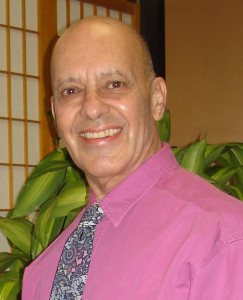Opinion: It is Not Economically Feasible to Find a Cure for Cancer
by Marcel Hernandez, ND

Dr. Marcel Hernandez
In the U.S. alone, we spend about $5 billion annually on cancer research.
With more than 260 nonprofit organizations dedicated to eradicating cancer in this country, the cancer industry is a goldmine of money, resources, and people.
So where are the results?
Why are cancer rates still climbing?
Oncologist David Chan, MD is one of many cancer specialists who aren’t seeing the fruits of the billions spent on cancer research.
Dr. Chan: “I’ll be the first to admit that despite all the billions put into cancer research, the end results of preventing cancer and treating advanced cancer have been disappointing.”
“Everyone should know that most cancer research is largely a fraud and that the major cancer research organizations are derelict in their duties to the people who support them.” – Linus Pauling (Two-time Nobel Laureate)
Medical historian Hans Ruesch says:
“Despite the general recognition that 85 per cent of all cancers are caused by environmental influences, less than 10 per cent of the (U.S.) National Cancer Institute budget is given to environmental causes. And despite the recognition that the majority of environmental causes are linked to nutrition, less than 1 per cent of the National Cancer Institute budget is devoted to nutrition studies. And even that small amount had to be forced on the Institute by a special amendment of the National Cancer Act in 1974.”
Simply put, treating disease is enormously profitable, and preventing it is not.
That’s why all cancer research in America is geared toward developing drugs and procedures that make an enormous profit for the Medical/Big Pharma industrial complex.
Finding a simple and elegant cure for cancer will put thousands of researchers out of work and create an economic crisis. Sad but true.
(Follow this link for more information.)
The Answer: Beyond Conventional Oncology in Treating Cancer
A recent study at the University of California, San Francisco, showed that an overwhelming majority (95 percent) of cancer patients want to incorporate complementary treatments in their care. But even though patients are increasingly seeking an integrative approach, the medical community has been slow to accept the trend.
The perception among doctors is that there’s insufficient scientific evidence to justify integrative care, and that patients and their families should pursue these treatments on their own.

Organically grown foods are known to contain thousands of cancer-preventive substances. Why does the cancer industry largely ignore them?
Dr. Marcel comments: Adjunctive cancer care goes beyond conventional oncology – beyond surgery, chemotherapy, and radiation. It focuses on managing the uncomfortable side-effects that traditional treatments often cause for cancer patients.
At the Hernandez Center, our adjunctive treatments include nutrition counseling, herbal medicine, mind/body medicine, intravenous Vitamin C, and more.
The inspiring truth is that patients who receive adjunctive care have longer, healthier lives than those receiving only conventional care.
Interested in finding out about adjunctive cancer treatment at Hernandez Center? Please phone us for an appointment: 650-917-1121






Speak Your Mind
You must be logged in to post a comment.